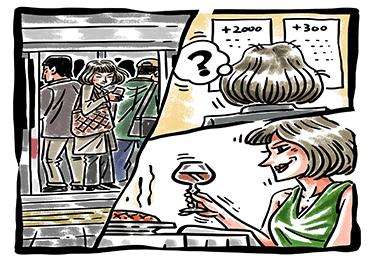ith over eight years of work experience in China, I’ve come to appreciate the nuances of the work culture in this dynamic country. While I never expected it to mirror my home country’s norms, I did encounter some stark differences.
Back in the US, my employment experience followed a predictable pattern. You were employed until you were fired, laid off, or decided to quit. Annual reviews were standard, but I never had to wonder whether my contract would be renewed or not.
Also, when applying for jobs back home, they gave you an offer for salary, which you could counteroffer, but the starting point which the company was willing to pay was transparent.
For my job in Beijing, I had to make the first offer. If they accepted right away, you’d wish you asked for more. We had to provide our employer with a 90-day notice before the end of our contract if we planned to stay. However, the same courtesy wasn’t extended to us.
Another expectation when renewing your contract was writing a letter detailing what we had done that year and why we deserved a raise. One year, I got a 2,000 yuan (US$273) raise and another year they offered me 300 yuan (US$41). I was never given an explanation about why one was so high and the other so low, considering my work was consistent.
However, while compensation is a significant consideration in any job, what matters most to me is work-life balance. My initial experience in China was far from ideal. I found myself entangled in a school scam that promised modern housing in the downtown but delivered a residence on the far-flung eastern outskirts of Beijing.
To make it to work by 8 am, I had to wake up at 5:30 am and transfer to three different lines on the subway. After leaving work at 5:15 pm, I would join the throngs of commuters on the subway and arrive home, if I was lucky, by 6:45 pm.
I had never been more miserable. I had no time for anything before work, and I was so exhausted after returning home that I’d order the quickest meal available and scarf it down before falling asleep, only to repeat the cycle the next day.
My turning point came when I realized I could transition away from teaching and pursue a job in my field of expertise – media. I secured an interview, and while many aspects excited me, one thing stood out: the working hours, from 11 am to 7 pm. I was elated!
Living closer to work, I now had precious mornings to enjoy breakfast, relax, and prepare for the day ahead. The 20-minute subway commute without transfers became a pleasant time to catch up with family back home.
After a few years at this job, I sought professional growth by applying to other companies. It was during this process that I truly grasped how fortunate I was. Many companies in China followed the “9-9-6” schedule, requiring employees to work from 9 am to 9 pm, six days a week.
While these companies were highly sought after and possessing them on my resume could be a significant advantage, I had to question whether I was willing to relinquish all my free time.
In that moment, I remembered my college days, juggling work and full-time studies while volunteering to gain experience. Those days were long gone, and so was my desire to be busy 24x7.
I continued my job search and eventually landed a position with one of China’s top news agencies. My excitement, however, turned to trepidation when they outlined the scheduling. Shifts rotated weekly with different shifts and some weekend work.
Ultimately, I accepted the job offer. To my surprise, the flexible schedule not only allowed for an excellent work-life balance but also gave me mornings off to run errands, take classes, or meet friends for a quick lunch.
While such a schedule may not suit everyone, it worked perfectly for me. Through trial and error, I found the balance I had been seeking. In a world where most professional jobs back home adhere to the customary 9-5 schedule, I hope more employers will explore flexibility. After all, we shouldn’t live to work, but rather work to live our lives to the fullest.

 Old Version
Old Version